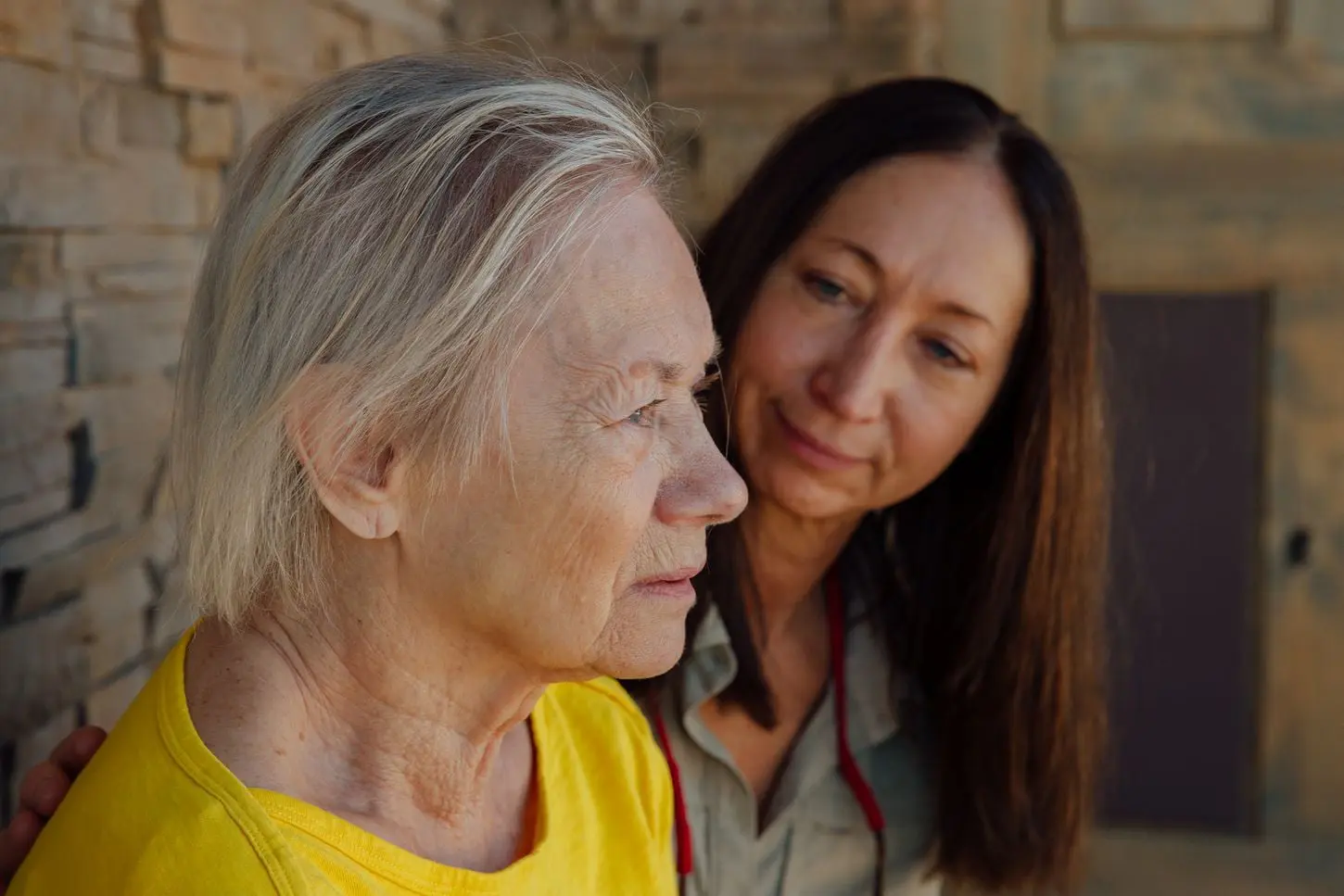FHCSD’s Program of All-Inclusive Care for the Elderly (PACE) offers inpatient home care services which include personal care and light housekeeping. For families whose lives changed when they moved their parent from a nursing home back into their home to become the primary caregiver, PACE may be an option for you. For more information, please call (619) 515-2445 / TTY: (833) 530-9622.
By Rachel Chason
Dena Ducane had to make a decision, but every option felt wrong.
She had pulled her mother, Rhoda Dobrovich, out of a memory-care facility in Santa Fe after watching her grow despondent during weeks without visitors. At home with Dena, Rhoda stopped crying and started smiling again.
But visitors were still barred from long-term care facilities in New Mexico because of the novel coronavirus. There was no end in sight to what Dena had thought was a temporary situation, and on this summer night, Rhoda had fallen out of bed, again.
So Dena checked for injuries, lifted her mother back onto the twin mattress set up three inches from her own bed, and considered the possibilities.
For approximately 2.5 million elderly Americans in long-term care, the threats posed by the coronavirus are twofold: rampant deaths and an unprecedented era of isolation.
Visitors were banned at long-term care facilities nationwide in mid-March, and communal dining and activities were mostly canceled. While those changes may have been necessary to slow the spread of the virus, medical experts say they proved devastating for the mental and physical health of residents, particularly the more than 40 percent who have Alzheimer’s or other forms of dementia at such facilities.
For Rhoda, 78, who started losing her memory five years ago, isolation led to vacant stares and bouts of tears. Her best friend in memory care, Nancy Bartine, was slipping away, too. She ate less, slept more and had trouble recognizing her daughter, Katherine Miller, during visits held on either side of a glass windowpane.
Sometimes together and sometimes on their own, Dena and Katherine had wrestled with what was best for their mothers, and what made sense — financially, practically, emotionally — for themselves.
Dena, 55, brought her mother home in early June after watching her curl into an aide’s shoulder during a window visit, inconsolable. By then, Nancy, 80, was too weak for Katherine to do the same.
To care for Rhoda, Dena mostly had to stop working in real estate investment, shifting responsibility to Alison Jayne, her business partner and live-in significant other. Dena and Alison had less time together, and far less privacy.

